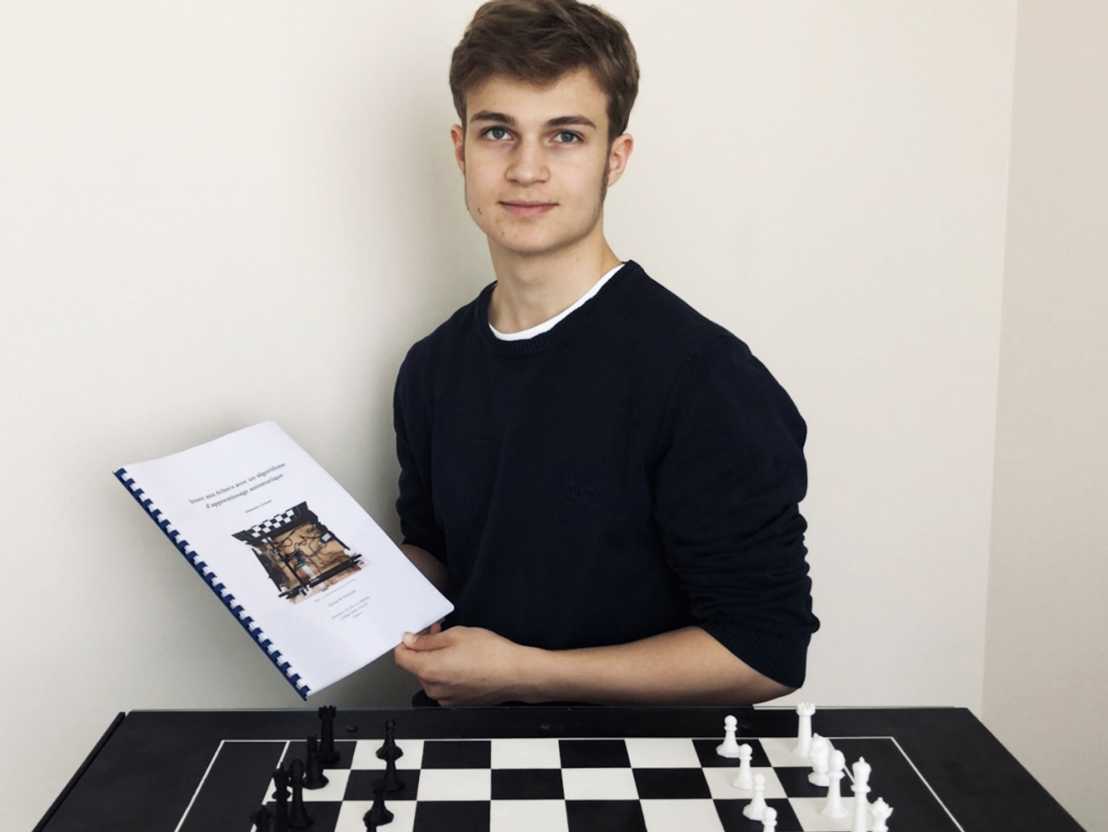
Sébastien Delsad. (Photo: courtesy of S.Delsad)
The second Alfred Escher Prize went to 18-year-old Sébastien Delsad from Cologny, canton of Geneva, for an extremely demanding project, both technically and theoretically. His goal was to programme and construct from scratch a chess computer that not only calculates moves using artificial intelligence and machine learning, but also executes them on a real chess board by means of magnetic detectors. The prototype was subsequently optimised in several steps, and is now likely to beat an average chess player.
The jury praised Sébastien Delsad’s high-quality work for drawing on a broad knowledge of electronics, assembly, computer science, artificial intelligence and algorithms. “The courage and creativity of the upcoming generation are unshakeable. This is strikingly demonstrated by the two Alfred Escher Prize winners this year”, summed up Ralph Eichler, former ETH President and Chairman of the Board of Trustees of Swiss Youth in Science. He is always fascinated by the ideas the young have for tackling and mastering challenges and “not least, how fearlessly they expose themselves to the risk of failure”, he says.
Competition in its 54th year
“Think further”– the motto of this long-standing competition for promoting young scientists – took on an unexpected relevance this year. For the first time in 54 years, the national final took place virtually. Following a multi-phase selection process, 136 participants from 20 cantons presented their projects to the experts by video call. The competition is open to young researchers in Switzerland from the age of 16 up to the end of secondary or vocational school. The majority of participants this year, namely 123, were attending grammar school, while 13 participants were completing an apprenticeship. The gender balance was almost even, with 65 women to 71 men.